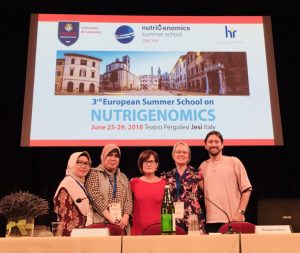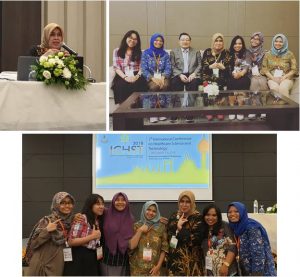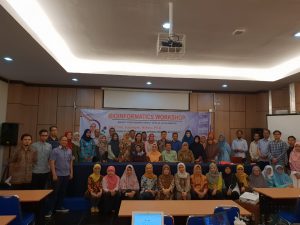Black Tea Leaves and Rambutan Peel from Indonesia Natural Plant has Biological Function as Anti-obesity Agents: Nutritional Genomic Study
Fatchiyah Fatchiyah
Head of Research Center of Smart Molecule from Natural Genetics Resources, Department of Biology, Faculty of Mathematic and Natural Sciences, Brawijaya University, Jl. Veteran, Malang 5145, INDONESIA. Email: fatchiya@ub.ac.id; ![]() +62 341575841
+62 341575841
Abstract
Obesity is one global problem not only in developed countries, but also developing country. The number of obese people in Indonesia is increasing in line with the change of lifestyle. Nowadays, Indonesia entered into the top ten countries with developing overweight and obesity, around 40% of the adult population. This is alarming to become a major public health concern. Obesity is a complex disease causing lack energy balance in the body, genetics & environmental factors, lifestyle and malnutrition. Indeed, Indonesia has a rich of natural plants such as tea leaves, rambutan peels, legumes, brown rice, fruits and vegetables. The ingredients of natural plants are able to control the developing obesity through the cell signaling pathway which is organized at the level of proteins and biological active compounds and has ability to interact and modulate molecular mechanisms underlying an organism’s physiological function. Our previous studies by animal model and in silico analysis shown the catechin of black tea leaves could lose the rat body weight gain and inhibit the Igf-1 protein and Igf-1 receptor interaction in the adipocyte. The ability of EC, EGC and EGCG of black tea was only prevented the L1-domain of IGF-1R binds of IGF-1 protein and reduced the adipocyte proliferation. The rambutan peel extract (RPE) was also protected the receptor of Igf-1 interact with its ligand protein in obese rats, both expressions were lower than control rat group. RPE has an ability to down regulate directly the adipogenesis regulation of PPARγ gene expression and mRNA level of FABP4 genes and also prevent the body weight gain by the declining size of the adipocyte in an obese rat model, respectively. Conclusion: catechin of black tea leaves and bioactive compound of rambutan peel extract has potential as an anti-obesity agents through regulation of the molecular signaling pathway of the adipogenesis gene cascade.
Keywords: adipogenesis, black tea, catechin, obese animal model, rambutan peel extract



